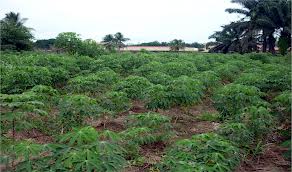Career Prospects for an Agricultural Economics Graduate

Dear sir,
I recently just read your book, The Road to Victoria Island, and I must confess it’s one of the best books I have read lately; in fact I had to share with my friends, quite insightful.
Now straight to the point, I’m a graduate of Agricultural Economics, finished with a second class upper (4.20), currently undergoing my NYSC here in Lagos.
Here are my questions, people have been advising me to switch to accounting by taking ICAN, but the problem is the money to finance it (I mean classes and exams), and truth be told I never liked accounting even when I did farm accounting back then in University. What’s your thoughts on this sir?
Another question, how do you think I can flourish with Agricultural Economics, I have done all I can to secure mentorships as I know deep down that I need more practical hands-on trainings.
More so, i’m stuck between going for my masters in Agricultural Economics or another new course (which is Climate change and Sustainable Development). Sometimes, one is stuck between going for one’s passion and just going for what will bring financial gains in a short term.
Are there professional courses you think I should consider? Do I even have a chance in the oil and gas sector, as I believe you have a good knowledge of that sector.
Please note sir that people like Dr. Akinwumi Adeshina spurred my interest to study Agricultural Economics, but truth be told it’s been hard out here, to secure an industrial training placement spot back then was an uphill task, people just discredit you once they hear Agriculture.
I need your enlightenment sir. A fresh graduate is at a crossroad.
Thank you Sir.
Laolu
***
Dear Laolu,
Thanks for finding my book helpful.
1. You studied a course that has little demand at entry level stage. While there is no harm in this, restricting yourself to it, i.e. saying you must start with a job in Agricultural Economics field may make you stay long at home. The opportunity will come, but it is not an everyday opportunity. Most of the firms that will specifically require Agricultural Economics – international agricultural institutions, research institutes etc – are not organizations that recruit every year. Worse still, they even hardly recruit entry level candidates. They prefer to take those with Masters and Phd, and with work experience (for example lecturing) elsewhere, sometimes even if not directly related to the field. If you look at the profile of Professor Akinwumi Adesina, he moved from first degree (1981) to second degree to Phd (1988) before delving out to launch his international career in global agricultural development. So thinking you will see a job opening that will require just Bsc Agricultural Economics will make you stay long at home.
2. Unconventional job search technique may however be helpful in quickening your job prospect, if you must start in an Agricultural Economics field. Researching and listing organizations that require Agricultural Economics, connecting with people that work there, and submitting your CV with them may help. But I still fear that most of them hardly have vacancy to fill at entry level.
3. You could also consider enrolling for master’s degree immediately and starting with a lecturing job. Either Msc in Agric Econs or in Climate Change and Sustainable Development is OK. Both can help you launch a career in international institutions.
4, If you don’t like accounting, you don’t need to write ICAN exams. While a professional qualification of ICAN’s standard can boost your job chances, there is absolutely nothing that says you must write ICAN, especially if you want to stick to your primary field. You have a good second class upper, which is enough to be shortlisted for entry level position in almost any job that does not discriminate course of study.
5. If you are in a hurry to get job, then you may have to sacrifice practising in your field and use your 2.1 to apply for any job that does not specify course of study as done by professional services firms, banking institutions, investment institutions etc.
6. For oil and gas, it is highly unlikely that you will see an oil and gas entry level opening that will list Agric Economics, but you are likely to see an oil and gas company that will list ICAN qualification (irrespective of course of study) as part of requirements in a job opening. So writing ICAN exam, finding job in professional services firms like KPMG, PwC, Deloitte, Ernst & Young etc, working there for 3-5 years and seeking oil and gas job may work.
7. Ultimately, the decision is yours. If you really want to stick to your Agric Econs field, go get masters (in Nigeria or abroad – you may find scholarships for this) and possibly PhD and find a way of penetrating these Agric institutions, local or international.
Agricultural Economics is an academic and research based field, you don’t need professional exams for it, what you need is Msc or PhD. If you want to divert, start finding jobs that don’t discriminate course of study, and decide to add IT or accounting professional exams.
All the best.
Jarus
Established in March 2013, JarusHub is a Nigerian information hub with focus on career and management. It is rated Nigeria's most authoritative destination for online career resources. It parades an array of Nigerian professionals who share their career experiences with a view to bridging career information gap and mentoring a generation to success. Whether you're a student, a recent graduate or an established professional, or even an executive, you will always find something to learn on JarusHub. All enquiries to jarushub@gmail.com or 0808 540 4500. Facebook: www.facebook.com/jarushub; Twitter: @jarushub or @mcjarus.
Career Q&A with Jarus: Oil & gas career, poor CGPA
September 17, 2023Career Q&A: Chartered Accountant or Software Engineer?
December 22, 2021
Let us have your say by leaving a comment belowCancel reply
Recommended For You
-
Take This Advice and Don’t Be a Job Seeker
June 27, 2016 -
Revitalizing the Nigerian economy: Beyond western dependence (ii)
November 15, 2013



